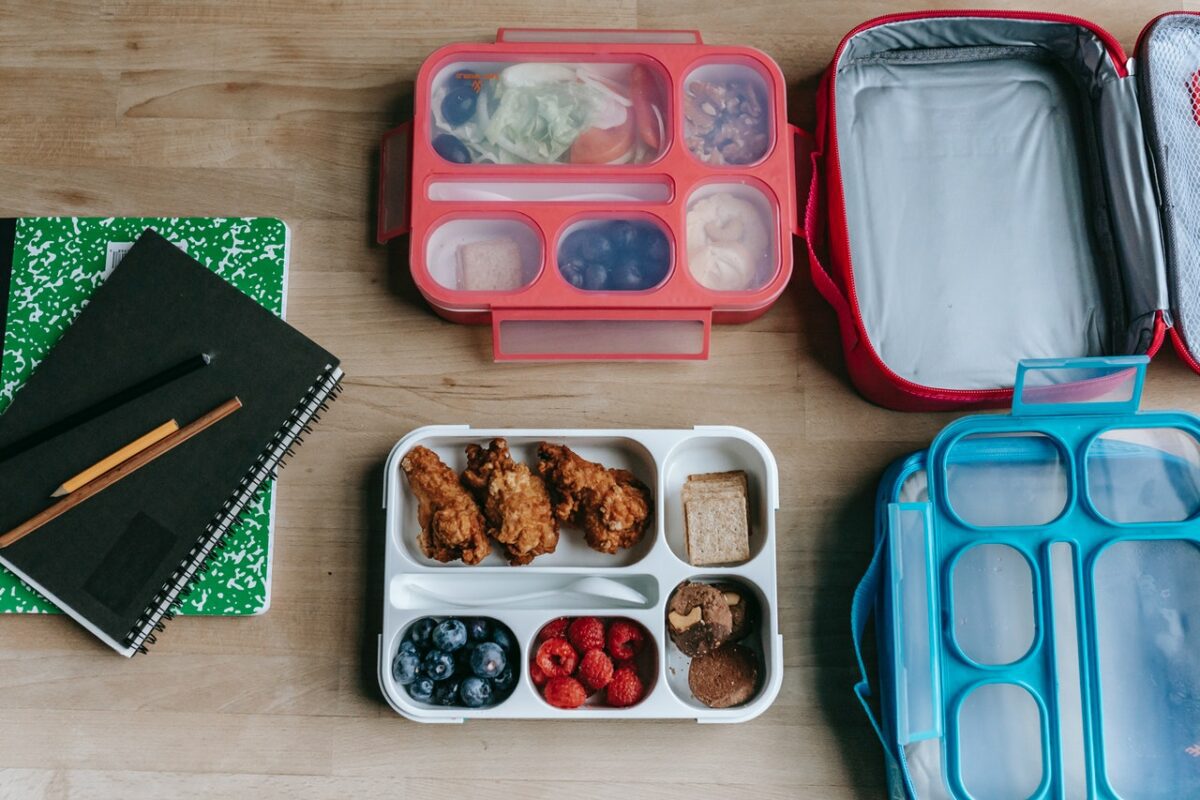Seven in ten school children on universal credit are not eligible for free school meals

In England, state school pupils whose families claim universal credit are only eligible for free school meals if their family’s post-tax earnings are less than £7,400 a year. This threshold – which has been frozen in cash terms since it was introduced in 2018–19 – means that 1.7 million pupils in England whose families are entitled to universal credit are not eligible for free lunches, worth about £460 per pupil per year.
Families on universal credit are also much more likely to be food insecure than other households; overall, 30% of families with school children claiming universal credit were classified as having ‘low’ or ‘very low’ food security in 2021–22, six times the rate among families not claiming universal credit. Even amongst universal credit claimants, though, food insecurity was highest among the lowest-income families: more than half of families claiming universal credit and earning £200 a week or less (before tax) were food insecure, compared with a third of families earning between £200 and £400 a week.
With Scotland, Wales and London committed to more universal provision – and a bill to offer free school meals to all primary pupils in England currently before Parliament – new IFS research published today, and funded by the Economic and Social Research Council, explores the options and trade-offs for potential expansions of free school meals in England. The research finds that:
- Of the 8.4 million children in English state schools, just under 2 million are eligible for a means-tested free school lunch. An additional 1.5 million young children are eligible for universal infant free school meals. Overall, just under a quarter of pupils are currently eligible to get a free meal at school each day, compared with a long-run average of about one in six. The recent rise in eligibility is mainly the result of ‘transitional protections’ brought in to ease the transition from legacy benefits to universal credit.
- Expanding eligibility to all state school pupils (primary and secondary) whose families claim universal credit could cost about £1 billion a year in the longer term, bringing total spending on free school meals to about £2.3 billion. These long-run costs exclude the impact of transitional protections.
- Instead offering free school meals to all state primary school pupils (as the London mayor will pilot from September) would also cost around £1 billion a year. This would benefit children in Years 3 through 6 (free school meals are already universal in Reception through Year 2). Offering free school meals to all state school pupils (Reception through Year 11) would cost about £2.5 billion a year, nearly trebling current spending. This amount of money would fund a roughly 10% pay rise for teachers. Neither of these reforms would directly impact the very poorest children, who are already eligible for means-tested free school meals.
- Since 2014, the per-meal funding rate has lost 16% of its value in real terms. The funding rate currently stands at £2.41 per meal; if it had increased in line with inflation (as measured by the Consumer Prices Index), it would now be £2.87. Restoring the funding rate to its 2014 level would cost an extra £250 million a year in current prices.
- These costs do not include any additional capital funding that would be needed to expand school kitchens and dining areas. As a rough guide, when universal infant free school meals were introduced in 2014, the government provided about £150 million in capital funding – roughly £100 per additional pupil brought into eligibility.
- Under the current system, free school meals are not ‘tapered away’ gradually. Parents who are earning near the £7,400 income cap therefore have a financial incentive to avoid earning a little more if it would mean losing access to free meals. For a single parent with two school-aged children, this ‘cliff edge’ means that earning £7,399 a year and keeping free school meals would be financially preferable to earning anything up to £9,400. That is equivalent to turning down an extra four hours of work each week at the National Living Wage.
Christine Farquharson, Senior Research Economist at IFS and an author of the report, said:
‘High levels of food insecurity among families on universal credit mean that policymakers such as the Mayor of London are once again consulting the policy menu for options to expand free school meals. The current system of means-tested free school meals is tightly targeted at the most disadvantaged families – so making existing provision more generous by, for example, reversing the real-terms cuts to the funding rate would directly benefit the very poorest.’
Andrew McKendrick, Research Economist at IFS and another author of the report, said:
‘Universalising free school meals would affect children across the income distribution and might have wider benefits for health and educational outcomes, but it would also significantly increase existing spending. Expanding eligibility – for example, to include more families on universal credit – would focus more of the additional spending on low-income families, but still would not directly benefit the very poorest children, who are already entitled to free lunches.’
Sector Response
Geoff Barton, General Secretary of the Association of School and College Leaders, said:
“It is shameful that so many children continue to miss out on a scheme with such proven benefits. As this report states, there is clear evidence that increasing the take-up of school lunches has a positive impact on living standards, nutrition and attainment that persists into adulthood. Providing free school meals alleviates some of the pressure on struggling families and gives children the guarantee of a healthy meal every day.
“ASCL and many other organisations have long called for free school meals to be extended to all children whose families are in receipt of universal credit. This is a simple, immediate step the government could take to ease the impact of the cost-of-living crisis which has made life even more difficult for many families.
“Not only has the government ignored these pleas, but it has also failed to provide enough funding for free school meals to keep pace with soaring inflation rates. The IFS report states that funding has fallen by 16% in real terms since 2014, when measured against the Consumer Prices Index. This is the equivalent of almost 50p per meal and increases the risk of schools being forced to cut back on provision at a time when it is a lifeline for many families. We implore the government to reconsider its position by improving the funding rate and extending the provision.”
Paul Whiteman, general secretary at school leaders’ union NAHT, said:
“Many children living in poverty miss out on free school meals under the current restrictive criteria.
“Since the pandemic and cost of living crisis we have heard more heartbreaking stories from members who have had to set up foodbanks, offer families supermarket vouchers, and fundraise to extend the number of pupils they can provide with free school meals.
“Teachers and school leaders are increasingly having to tackle the impact of poverty before they can even start teaching.
“NAHT is clear that extending free school meals to all children in households in receipt of universal credit would provide a nutritional safety net which would make an enormous difference to children’s health, wellbeing and their ability to learn.
“It’s the right thing to do and we urge the government to fund this extension to free school meal eligibility as soon as possible.”
Kevin Courtney, Joint General Secretary of the National Education Union, said:
“It’s clear that the current means-tested system of free school meal eligibility coupled with the Government’s cost of living crisis is squeezing family budgets and increasing food insecurity and child hunger. All children deserve a hot, healthy meal each day to be able to learn and access the education they are entitled to. Food is as important to learning as books, pens or a chair to sit on.
“Restrictive eligibility and a focus on means-testing eligibility results in many more children going hungry than are receiving free school meals. They also create unfair situations where two families in very similar circumstances receive different levels of support. Research suggests that the benefits of offering school food as a universal provision far outweigh the costs and that the best way to ensure that no child goes hungry is to offer free school meals for all. The Government must commit to rolling out free school meals to all children in primary schools as a first step and increase funding for school meals in line with inflation.”











Responses